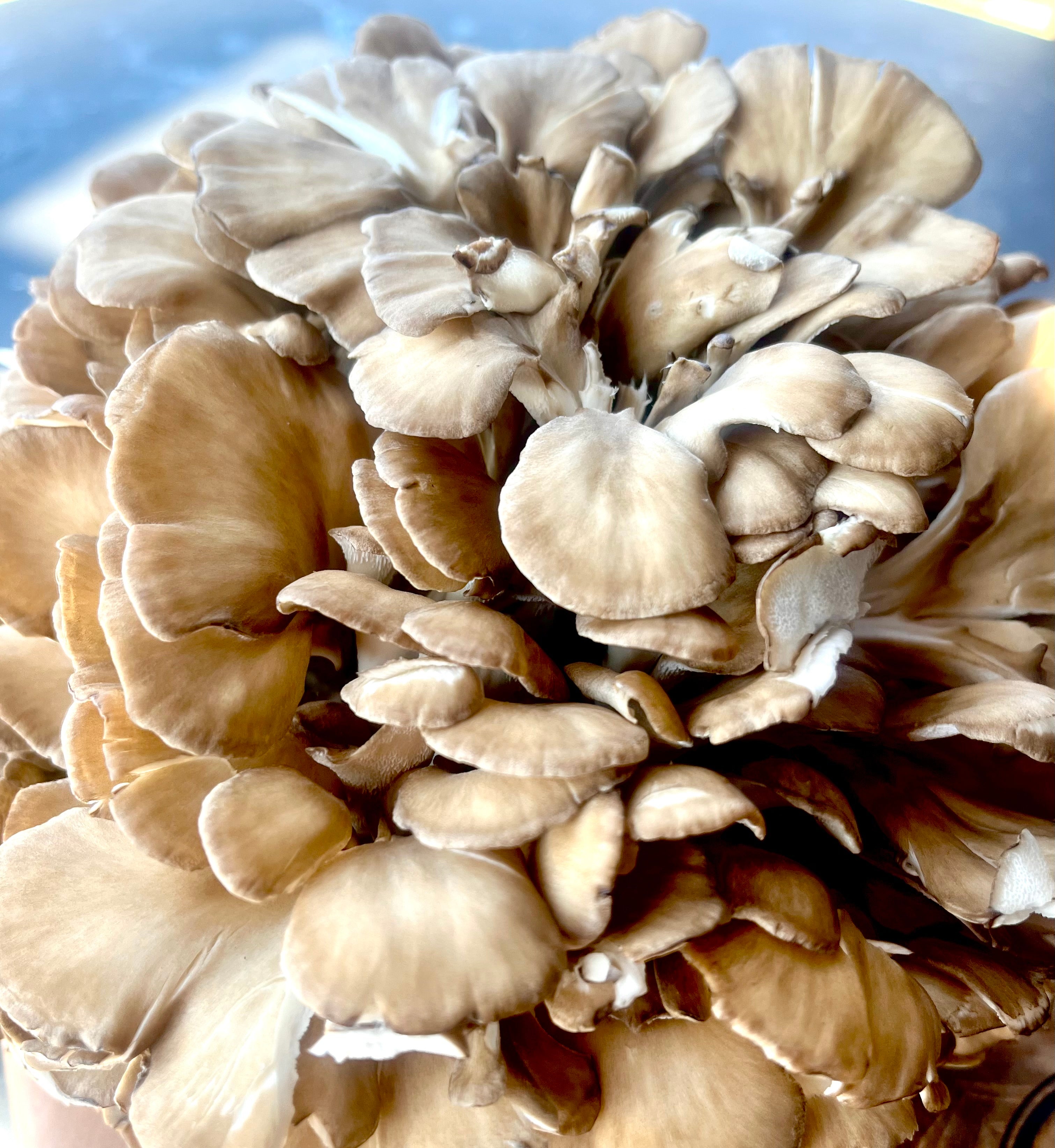
Maitake
The first thing most people notice about Maitake (Grifola fronderosa) is that it doesn’t really look like a mushroom. It grows in rosettes of dove-grey, softly striated petals, blooming in clusters, and looking more like a woodsy carnation than a fungus. This appearance has given Maitake its colloquial name, “Hen of the Woods,” because it looks, well... like a bunch of chicken feathers growing in the woods. The name “Maitake” is Japanese in origin, and translates to “dancing mushroom.” This could come from the fact that the intricate petals appear to dance when the mushroom is jostled, or from the fact that foragers are observed to dance with joy upon finding one.
Perhaps another reason Maitake is dubbed “Hen of the Woods” is that it really does have a smoky, roasted chicken flavor. There is a toothsome savoriness to it, and a soul-satisfying funk -- imagine a fatty, spit-roasted bird, washed down with a crisp lager. Got that aftertaste rolling around your imagination? Then you’re getting into Maitake flavor territory. And like anyone who has ever loved Maitake knows, you just really can’t go wrong. Pull it apart into florets and saute it with butter and herbs. Or keep the bunches intact, drizzle the whole thing with olive oil and roast for 15 minutes at 350º (finish with a drizzle of balsamic). Best pizza mushroom, hands down. Eastern-style soups. Western-style soups. Risotto, Beef Wellington, hot pot, ramen, duxelles, any variation on pasta you could possibly imagine. A favorite burger secret: chop Maitake up super finely, give it a brief sauté, then mix it with your ground chuck before forming patties.
Besides containing high levels of vitamin D and B-complex vitamins, Maitake’s considerable beta-glucan and antioxidant content make it a powerful immunomodulator. Beta-glucans are long strands of glucose molecules, which, when passed through the digestive system, activate innate cells in our immune system, and trigger them to patrol our bodies for pathogens, viruses, and damaged cells that could lead to tumor growth. Maitake, in layman’s terms, wakes up the body’s security guards, and sends them out to look for bad guys. However, in order to access the active compounds that give Maitake its beneficial properties, the mushrooms must be thoroughly cooked. Beta-glucans are not soluble in the digestive system until heat is used to separate them from the cellular walls of the mushroom, so never eat Maitake raw. Clinical laboratory trials have also shown Maitake to be effective in regulating blood-sugar and cholesterol, and to have anti-tumor, anti-depressant, and antiviral effects.
